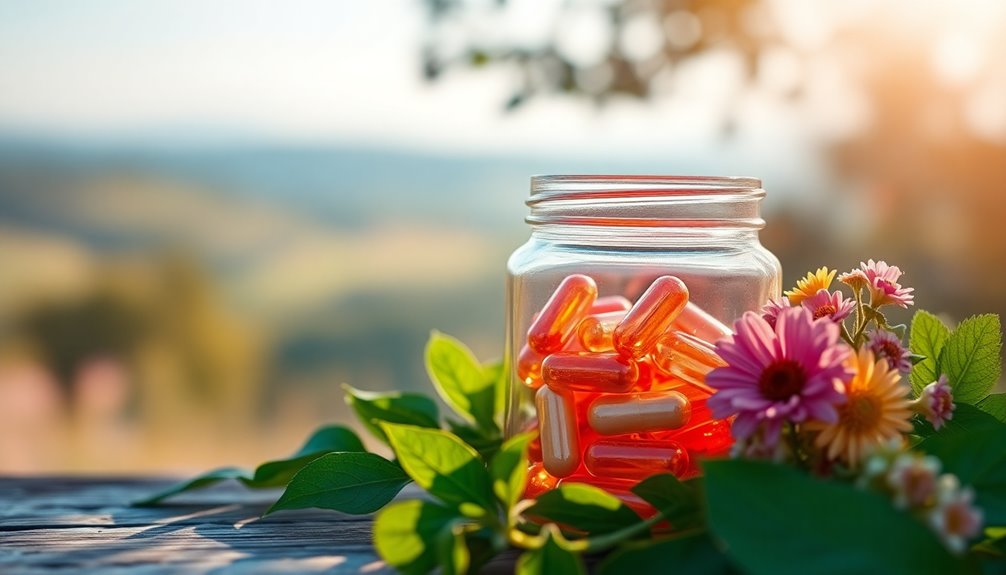Have you felt that deep emptiness after learning a hard truth about someone you love? It’s like a storm, shaking the base of your trust. When your partner struggles with sex addiction, it hurts a lot. You may feel lost, alone, and heartbroken.
You might question your value, wondering why this disorder affects your relationship. Seeking advice from a sex addiction expert can offer hope. They provide insights into overcoming sex addiction, helping you handle love, loss, and healing.
These relationships test more than love; they need specialized help for growth. With kindness and correct tools, you build the strength to face these issues. You can then redefine connection and intimacy in ways that matter.
Key Takeaways
- Understanding sex addiction is essential for rebuilding trust and intimacy.
- Early experiences can significantly impact addictive behaviors, making recovery complex.
- Consistent therapeutic intervention is crucial for long-term recovery.
- Recognizing the signs of intimacy disorders can aid in healing processes.
- Transparent communication fosters trust and mitigates risks of relapse.
- Support groups combined with professional therapy have the best outcomes for recovery.
- Developing healthier attachment styles can facilitate emotional recovery and bonding.
Understanding Sex Addiction
Understanding sex addiction is about looking closely at what it means and how it shows up. It’s marked by repeated, compulsive sexual behaviors. These actions hurt one’s ability to have healthy relationships. Spotting the signs of this disorder is crucial for getting help.
Definition and Characteristics
The definition of sex addiction points to an intense need for sexual activities. This could be too much pornography, cheating, or having many sexual partners. People with sex addiction may feel shame and guilt. They find it hard to control their desires, which hurts their relationships. They often deal with low self-esteem, depression, and anxiety, making true connections hard.
Compulsive Sexual Behavior and Impulsivity
Compulsive sexual behavior is about always searching for sexual satisfaction. This often leads to impulsive actions in relationships. People might ignore deep connections for brief sexual moments. Stopping these activities can cause strong guilt feelings, keeping the cycle going. Knowing about this helps us see the damage of sexual addiction on lives and relationships. It shows why understanding and help are so important.
| Characteristic | Description |
|---|---|
| Obsessive Thoughts | Individuals may have constant thoughts about sex, disrupting daily life. |
| Neglect of Responsibilities | Spending too much time on sex can hurt job, school, or family life. |
| Relational Distress | Loved ones may feel forgotten and hurt, causing a lot of emotional pain. |
| Emotional Dysregulation | It’s hard for them to manage their feelings, leading to rash decisions about sex. |
| Legal and Financial Consequences | Risky sexual actions can bring serious legal problems and financial troubles due to addiction. |
Recognizing the Intimacy Disorder
Knowing the signs of an intimacy disorder is key to understanding the roots of sex addiction. Intimacy and vulnerability are crucial for healthy relationships. Yet, those facing these challenges often feel cut off from their feelings. They usually have troubled pasts impacting their way of connecting, leading to compulsive actions tied to childhood traumas.
Understanding Intimacy and Vulnerability
Intimacy means building a real connection, sharing your feelings and fears. It often requires being open and vulnerable, which is hard for some people. Those with intimacy issues might avoid getting close to others or show emotional coldness. This behavior usually starts as a way to protect themselves from old wounds. It stops them from forming true intimate connections, leading them towards unhealthy sexual habits.
Impact of Early Experiences on Addictive Behaviors
Early life trauma and addiction are often connected, influencing how one deals with intimacy. Negative early experiences, like neglect or abuse, can spark harmful emotional reactions. People might turn to compulsive sexual activities to cope, trying to fill an emotional gap. Feelings like anxiety and shame from these experiences make healing hard. Overcoming these effects in therapy is vital.

Put in the Work for Recovery
Starting to heal from sex addiction means facing hard truths about what you do. Learning about and identifying problematic behaviors like too much masturbation and watching a lot of porn is crucial. It helps you start to recover and heal your relationships.
Identifying Problematic Behaviors
Some people with sex addiction use certain actions to deal with emotional hurt. These can include:
- Obsessive masturbation
- Pornography use
- Anonymous sexual encounters
- Exhibitionism
It’s important to see how your past affects your actions today. Understanding how being neglected, abused, or not cared for properly played a role is key. It helps you see things more clearly and start to change.
Understanding the Role of Honesty in Healing
Being honest is crucial for recovery. Admitting to yourself the lies you’ve told and how they hurt others is the first step. For true closeness, you need to share your struggles and the deep hurts driving them.

Building empathy and integrity helps a lot. Talking openly about your recovery and what triggers you builds trust. This trust helps you form the support needed to beat sex addiction.
| Aspect | Importance |
|---|---|
| Identifying Problematic Behaviors | Creates awareness and allows for targeted strategies to address addiction. |
| Honest Communication | Builds trust and fosters deeper relationships. |
| Self-Awareness | Facilitates healthier coping mechanisms and emotional understanding. |
| Support System | Provides the emotional and practical backing needed for long-term recovery. |
The path to recovering from sex addiction is a journey of constant self-discovery and understanding. Accepting this challenge paves the way for real change and meaningful relationships.
Readiness Indicators for Relationships
Knowing if you’re ready for a relationship means looking at key factors. This shows if you’re set for a healthy bond after beating addiction. It’s about personal growth during recovery. You sharpen self-awareness and empathy. You also feel worthy of good relationships.
Personal Growth through Recovery
Recovery brings out indicators of recovery that prove you’re ready for new bonds. You might get better at talking things out, handling your emotions, and valuing yourself more. Working through recovery helps you understand and control your feelings. This replaces bad old habits with positive ways of interacting.
Checklist for Relationship Readiness
A relationship checklist helps check if you’re ready for a new partner. Think about these points:
- You actively participate in a recovery program.
- You communicate your feelings openly and honestly.
- You manage co-occurring issues, such as anxiety or depression.
- You demonstrate empathy towards others and yourself.
- You have established a support network to navigate challenges.
- You can recognize and address emotional triggers effectively.
- You understand the importance of trust and transparency in relationships.
Relationships should make your life better, not just fill a gap. This checklist helps you see if you’re truly ready to connect deeply with others.

Being in a Relationship with a Sex Addict Expert
Being with a sex addict brings many challenges that need expert help. Talking to a sex addiction therapist helps both people involved. They can make the relationship healthier, feel better emotionally, and grow closer. A therapist plays a key role in helping manage the problems in such relationships.
The Role of a Sex Addiction Therapist
Seeing a sex addict therapist is key to understanding addiction effects. They guide partners through tough emotions and fix broken communication. They point out unhealthy habits. And they help both understand each other’s feelings better.
- Setting Healthy Boundaries: Therapists help couples decide and keep personal limits. This makes a safe space where needs can be shared respectfully.
- Facilitating Open Communication: It’s important to talk about hard topics well. A therapist gives tools for discussing cheating, trust, and hurt feelings.
- Encouraging Self-reflection: Working with a therapist helps both look at their actions. This helps understand how they affect the relationship.
- Providing Emotional Support: Recovering can be hard emotionally. A therapist offers a place to work through feelings of being left out or betrayed.
Getting therapy together or as a family can really help with intimacy problems. Studies show 75% of those in treatment for sex addiction also deal with co-dependency, often because of their past. Sex addiction therapists help couples with these issues to get closer emotionally and improve their relationship.
| Benefit of Therapy | Description | Outcome |
|---|---|---|
| Improved Communication | Therapists teach couples to share feelings clearly, making less room for misunderstanding. | Deeper emotional connection |
| Enhanced Trust | Therapy helps with being honest about past issues and how to build trust again. | Firmer relationship ground |
| Identification of Patterns | Seeing behavioral patterns helps tackle problems together. | Fewer fights |
| Support Groups | Groups like S-Anon give more emotional backing for partners. | More hope and healing together |
Talking to the right therapist shines a light on the recovery and healing path in relationships hurt by sex addiction. Their support helps grow both individuals and their relationship together.

Navigating Dating as a Recovering Addict
Dating in recovery presents unique challenges. Many who are overcoming sex addiction face emotional hurdles. This makes dating harder and raises fears of relapse.
Challenges in the Dating Pool
In dating, recovering addicts may encounter issues such as:
- Fear of Rejection: Worrying about being accepted can lower your confidence in making new connections.
- Lack of Experience: Those in recovery often feel they don’t know how to have healthy relationships.
- Pressure to Engage: Around 45-50% struggle with the rush towards sexual intimacy.
- Anxiety About Relapse: Dating can trigger fears of slipping into old habits.
These issues can lead to shallow relationships rather than deep connections. It’s important to think about what you really want from someone you’re dating.
Importance of Sobriety in New Relationships
Sobriety and relationships need trust and dedication to recovery. It’s often best to have a year of sobriety before dating. Talking about your recovery journey can reduce shame and help build closer relationships.
Finding a good partner requires effort and careful thought. Things to consider include:
- Building a Support Network: Connect with friends and groups who get your situation.
- Communicating Openly: Being honest can lead to happier relationships and better understanding.
- Taking It Slow: Strong friendships can turn into lasting love.

By focusing on these strategies, you improve your dating opportunities as a recovering addict. Understand that intimacy takes time to develop. Standing firm in your recovery will guide you to happier, healthier love.
Relearning Bonding and Attachment Styles
Recovering from sex addiction means looking closely at how we connect with others. It lets us see how addiction has affected our ability to attach securely. Realizing and working on this helps us create better relationships.
Developing Secure Attachments
Learning to form secure bonds can change how we relate to people. As we grow through recovery, we can forge relationships based on trust and empathy. To build secure attachments, consider these strategies:
- Awareness: Understand your attachment style and its impact on your relationships.
- Communication: Talk openly about your feelings and fears concerning closeness.
- Support: Find support groups or therapy to delve deeper into these topics.

Coping with Fear of Intimacy
Fearing intimacy can be tough to overcome. It often comes from not dealing with early life issues. Here are some ways to manage this fear:
- Gradual Exposure: Take small steps towards being comfortable with intimacy.
- Reflective Practices: Use journaling or meditation to better understand your feelings.
- Sharing Experiences: Talk about your past hurts or fears with someone you trust. This builds understanding and connection.
Working on secure bonds and overcoming intimacy fears leads to healthier relationships. By focusing on these key points, your recovery will help you form meaningful and close connections in your life.
The Importance of Transparency
Transparency is key in any relationship touched by sex addiction. Open communication helps both partners heal together. Trust then becomes central to recovery from the hurt caused by addiction. Addiction is complex and requires dedication. Rebuilding trust might take 3-5 years after big betrayals.
Building Trust through Open Communication
For couples dealing with addiction, talking openly is crucial. It lets both share feelings and experiences without judgment. In the first six months, understanding each other’s recovery commitment is important. This emotional exchange builds trust and creates a safe space.
Being Honest about the Addiction
Addicts need to be fully committed to recovery to rebuild trust. Early recovery may see relapses, which upset partners a lot. Joining individual or group therapy helps. It also shows a long-term healing commitment. Couples should keep their discussions private to avoid shame.

Conclusion
Dealing with a sex addict in a relationship can be tough, but it’s crucial to remember that it’s possible to have a healthy relationship. This article has covered the topic of sex addiction, its effects, and how to heal. It’s key to recognize the challenges, like dealing with betrayal and shame, to make positive progress.
To begin healing, it’s important to communicate openly and understand each other. This rebuilds trust. Many people report feeling anxious and depressed, showing how essential support is. Both addicts and their partners need strong support networks for a better future together.
Even though it’s a hard journey, growth and intimacy are achievable. Getting professional help and committing to recovery can make a big difference. You can build a loving relationship that meets both partners’ needs. With effort and understanding, the struggle with sex addiction can strengthen your bond.









